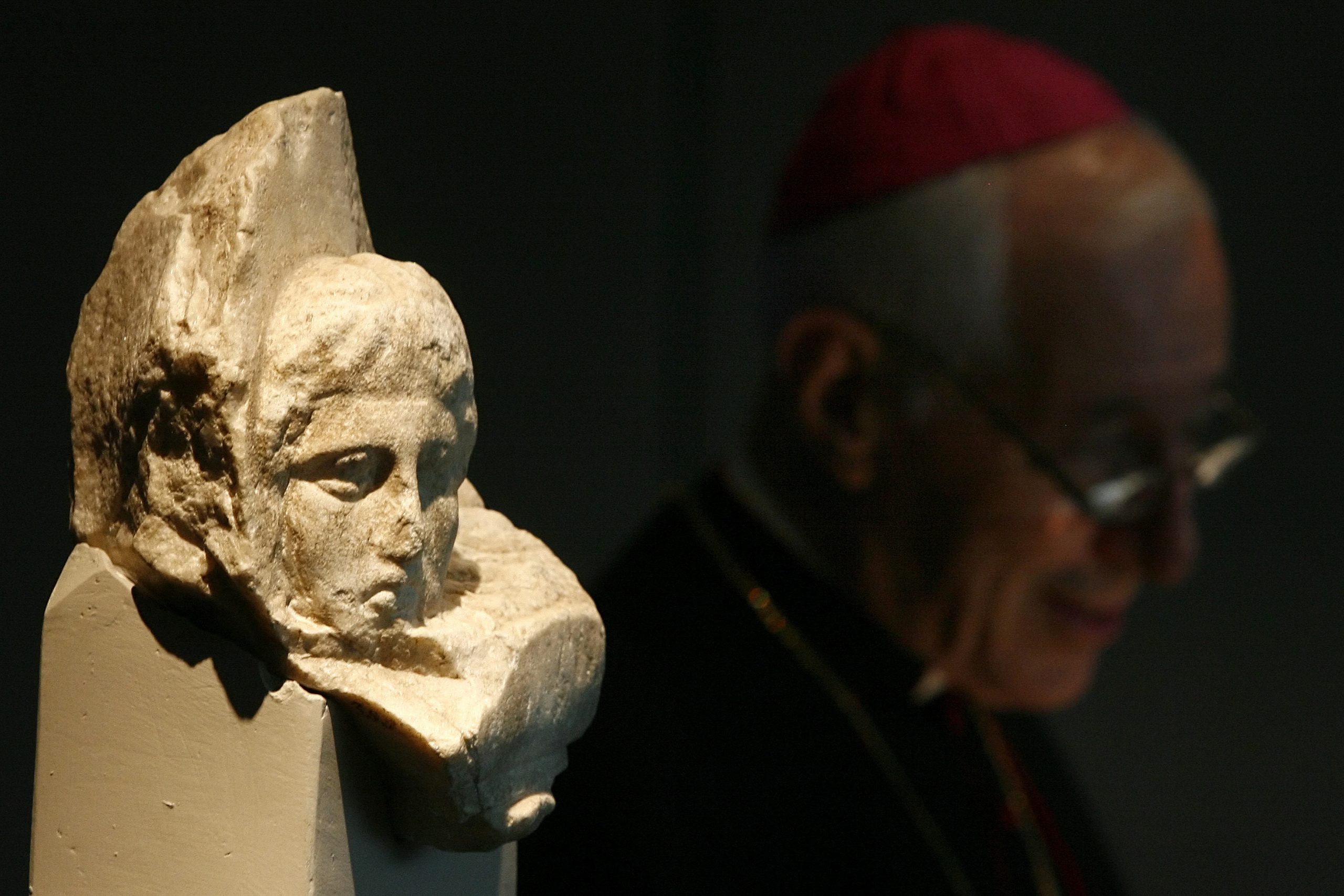
Following an order from Pope Francis, the Vatican Museums has finalized an agreement with Greece to repatriate three Parthenon sculpture fragments from its collection.
The three pieces, including one that depicts a head of a horse, another of a bearded male, and the third of a young boy, have been held by the museum since the 19th century. With a transportation deal now in place, the artifacts will reach Greece later this month, where a reception ceremony is planned for March 24.
One of the Parthenon Marble fragments, depicting a horse’s head, that the Vatican Museums is returning to Greece. Photo: Vatican Museums.
But rather than a state-to-state transfer, the Vatican has designated the return a “donation” to the archbishop of the Greek Orthodox Church, Ieronymos II. In a statement in December, the museum called the move “a concrete sign of [Francis’s] sincere desire to follow in the ecumenical path of truth.”
“This initiative does help heal wounds of the past and it demonstrates that when Christian leaders work together, they can resolve issues in a practical way,” the church’s envoy Father Emmanuel Papamikroulis told the AP. “It has taken place at a difficult time for our country, and it will hopefully provide some sense of pride and happiness. I hope this initiative is followed by others.”
Pope Francis’s visit with Ieronymos II in Athens. Photo: Vatican Media/Pool/Spaziani/Mondadori Portfolio via Getty Images.
The move marks the rare instance of a Western institution heeding Greece’s calls for restitution of the marbles. The British Museum, which has retained about half of the surviving Parthenon Marbles since 1816, has thus far balked at returning the objects.
While the U.K. and Greek governments have been in recent talks about the marbles, a repatriation deal apppears to be far off. The U.K. floated the idea of a long-term loan, which Greece rejected; in February, the parties discussed a “hybrid” arrangement regarding ownership of the marbles—a deal that has been greeted with skepticism from the Greeks.
The 2,500-year-old sculptures represent the remnants of a 525-foot frieze that surrounded the exterior of the Parthenon in Acropolis, dedicated during the 5th century BCE. The temple was extensively looted in the 19th century—most prominently by the 7th Earl of Elgin, who sold his plunder to the British Museum in 1816.
In 2009, Greece opened the Acropolis Museum, complete with a Parthenon Gallery intended to display all the surviving marbles, in large part to urge repatriation of the artifacts. The British Museum, however, has remained unmoved or unmovable.
“We hear the voices calling for restitution,” said George Osbourne, the museum’s chairman, in November. “But creating this global British Museum was the dedicated work of many generations. Dismantling it must not become the careless act of a single generation.”
More Trending Stories: